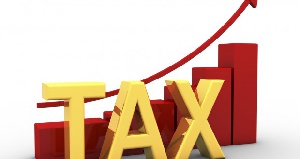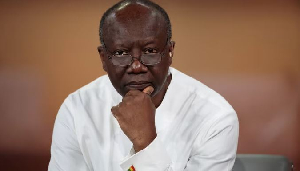With tax hikes, which led to the increment in fuel prices, and the expected uptick in inflation, the Central Bank had no other option but to keep or stay its policy rate at 16 percent heading into the crucial last quarter, a Databank Research note on the regulator’s action, has said.
According to paper, which was authored by Courage Kingsley Martey, a Senior Economist at Databank Research, the mounting headwinds require a firm grip on the policy wheel despite the rebased Consumer Price Index (CPI) which indicated lower inflation at 7.8 percent in August 2019 as against 9.4 percent for July 2019 with the old data.
“Although the rebased CPI inflation of 7.8 percent falls below the midpoint of the existing medium-term target band of 8 percent ± 2 percent, we perceive sufficiently elevated risks to the inflation outlook to prevent an easing of the policy stance,” the paper said.
The MPC, Databank pointed out, equally noted a slight increase in core inflation alongside a “moderate pick-up in inflation expectations”, denoting heightened risks to the inflation outlook.
“We further believe that a decision to immediately lower the policy rate without realigning the optimal inflation target with the rebased inflation environment could undermine credibility of the policy rate as a risk signaling tool,” it added.
With the increment in taxes resulting in a 3.7 percent increment in fuel prices which shot up transport fares by 10 percent, the research paper expects these higher cost variables to push up food inflation in the near-term with a consequent increase in headline inflation.
Also, telcos are expected to start charging additional 3 percent on the communication service tax (CST) to 9 percent with effect from October 2019 and these, Mr. Martey believes should combine with recent hikes in ex-pump prices and transport fares as well as earlier increase in utility tariffs to steepen the upturn in inflation curve.
“We therefore view the cautious monetary policy stance as prudent and appropriate,” the paper added.
Worrying gov’t revenue shortfalls
As government continues to miss its revenue targets since 2016, the research paper contends that the persistent shortfall reflects structural challenges and remains an upside risk to the Treasury’s borrowing requirement.
The Finance Ministry continues to record shortfalls in revenue collection relative to targets since 2016. The fiscal data for the year to July 2019 showed 15.7 percent shortfall to the target of GH¢31.8 billion for the period. The revenue shortfall was mainly on account of lower international trade taxes, reflecting the impact of government’s reduction in benchmark values for import duty at the ports.
Notwithstanding the 15.7 percent revenue under performance, the ministry was only able to restrain spending by 5.8 percent below the ceiling of GH¢42.9 billion. This translated into an overall budget deficit of 3.9 percent of GDP, pushing above the deficit limit by 0.7 percent of GDP. Similarly, the primary balance recorded a deficit of 0.7 percent of GDP against a target surplus of 0.1 percent for 7-months to July 2019.
“While we acknowledge the Treasury’s effort to improve revenue collection, we view the persistent shortfall in revenue-to-target as reflecting structural constraints which would only improve in the medium term rather than the short term.
In view of the weaker-than-programmed primary balance, we perceive elevated borrowing needs for the government. This would prevent a near-term decline in interest rates, further supporting the MPC’s decision to maintain the policy rate at 16 percent,” Mr. Martey added.
Business News of Thursday, 26 September 2019
Source: thebftonline.com













